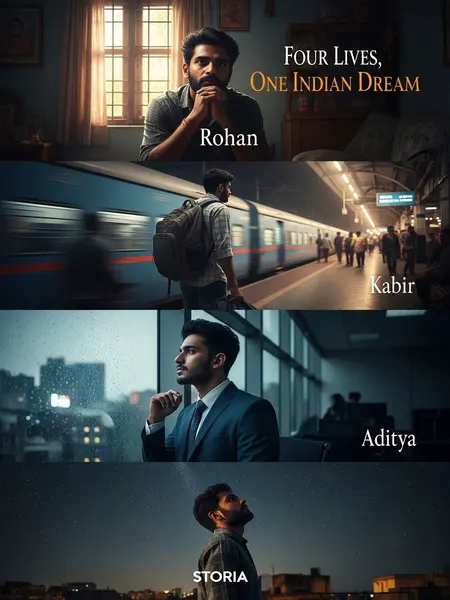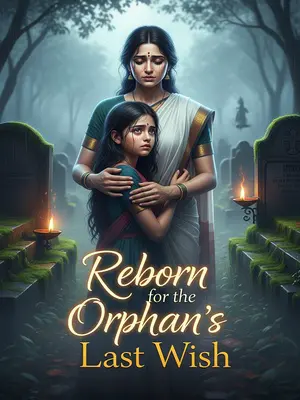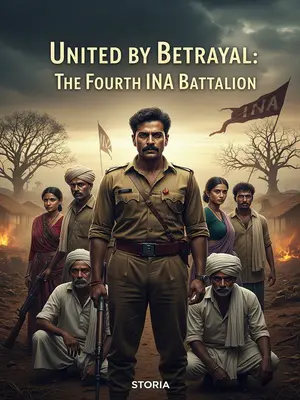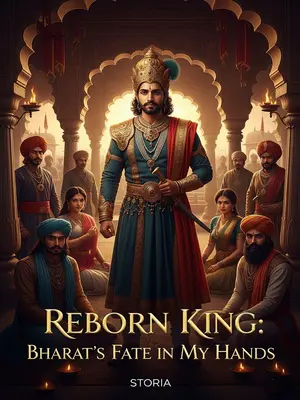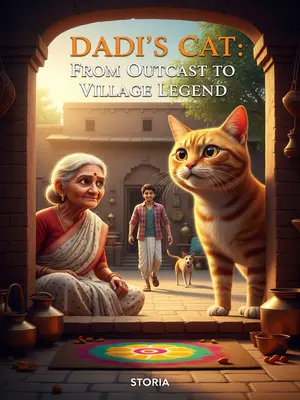Chapter 3: Kabir—The Seeker’s Journey
A young man, at the age of 20, picked up a camera and decided to travel the world.
Kabir was the type to get itchy feet just sitting through a family lunch. At twenty, he bought a battered old camera from Chor Bazaar, packed his rucksack, and announced to his startled parents that he was leaving to “find himself.” His mother fretted, stuffing laddoos and a bottle of Dabur Chyawanprash into his bag, but Kabir was already on the move—eyes shining, heart thumping with anticipation. He’d send voice notes from train stations, the background full of chaiwalas shouting and train whistles.
He went to Rishikesh to practise meditation; on the Andaman Islands, he tasted all sorts of traditional foods; in Africa, he lived among various indigenous communities. First stop: Rishikesh, where he tried to sit cross-legged for hours, but his legs kept going numb. He ate prasad at the ghat, learned a bit of Sanskrit, and took long dips in the icy Ganga. Then to the Andamans—he tasted fresh coconut water, sticky with sweetness, and learned to fry fish with a pinch of home-ground masala from a Tamil aunty who ran a tea stall near the jetty. In Africa, he stayed in dusty villages, sharing meals and stories with locals, dancing under the stars to the beat of drums. Every new place peeled away another layer of his own ignorance.
In his own words: "I once pressed my face to the ground to smell the scent of the earth." Kabir’s travel journals are filled with poetry, but his words are simple. He writes about the first monsoon rain after months of heat, about how the mud smells just like it did in his grandmother’s courtyard in Kanpur. “When I pressed my face to the ground,” he says, “it was like meeting my oldest memory.”
He lived like this until he was 28, by which time his only possessions were a camera and a bicycle. By the time he hit 28, Kabir’s worldly goods fit into one tattered backpack—camera hanging by a frayed strap, a cycle bought second-hand in Goa. He didn’t own much, but his mind was crowded with images and stories. Sometimes, he would crash in ashrams, sometimes on a friend’s verandah, his feet calloused but his eyes still hungry for the world.
But from the age of 28, he decided to shift his exploration from the physical world to the world of ideas, seeking out the most cutting-edge thinkers. Something changed at 28. One night in Ladakh, watching the Milky Way, Kabir wondered if adventure lay not just on dusty roads, but also in the mind. He started reading obsessively, writing letters to professors, tracking down scientists, yogis, and startup founders. His journeys moved from the physical to the cerebral, conversations replacing kilometres.
He visited the world’s top tech entrepreneurs, thinkers, and various leaders. Kabir’s travels now took him to Bengaluru’s startup conferences, Silicon Valley’s hackathons, and quiet coffee shops where philosophers gathered. He listened more than he spoke, jotting notes on napkins and the back of hotel bills, always searching for what made people tick.
The protagonist of this story is Kabir, who later wrote books predicting the future such as 'Out of Control' and 'The Inevitable.' He is someone who truly opened himself to the world and experienced it fully. Kabir became a name known among the curious and the restless—his books, like ‘Out of Control’ and ‘The Inevitable’, found their way into college libraries and startup offices. People say he never really settled down, but maybe that was the point. He opened himself to the world, gathering it all in—every strange face, every difficult question, every fleeting joy. To wander, for Kabir, was to live.
